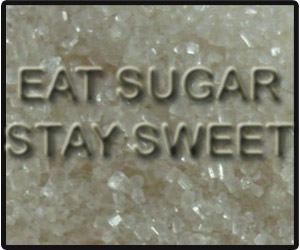
According to the study, when we consume sweet drinks we apparently get a sugar rush that nourishes the brain with feed that is necessary to choke off outspoken opinions. That’s right! Levels of glucose in the body control the way we express our opinions.
“Ensuring people have sufficient energy for self-control may help to improve their ability to control both prejudice and use of stereotypes in their day-to-day life. People with lower glucose levels are more likely to use stereotypes when describing others and, if they are high in prejudice, are more likely to make derogatory statements,†the researchers remarked.
They further added, “When people engage in the act of trying to control public expressions of prejudice or the use of stereotypes, they consume the energy required for self-regulation. However, once the energy source is restored to normal levels, people regain the ability to control conscious responses towards others.â€
In order to find whether sugar really affects the way we behave, the international team of researchers analysed two groups of students. While one group was given lemonade with sugar, the other group was given lemonade with an artificial sweetener. These volunteers were then shown the picture of a young man called Sammy, who was said to be gay. The participants were next asked to jot down the daily activities of this man based on the pictures they were shown for about five minutes.
The researchers then checked how many times the participants had referred to stereotypes related to gay men. Equipped with a list of 58 stereotypes commonly used for gay men, the researchers correlated the number of times the volunteers had written these stereotypes. To their surprise, the team found that those who had consumed the sugary drink had written very few stereotypes in their essays as against those who had drunk the artificial sweetener.
Authors of the study suggest that higher amounts of glucose in the body may keep people from revealing objectionable thoughts. They thus conclude that sugar can in fact make you a sweeter person.
So the next time you want to avoid picking a fight with your sibling, guess you don’t have to try too hard. Just have a sugary drink!
The novel research has been published in the Journal of Experimental Social Psychology.
